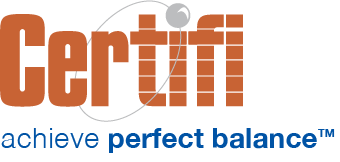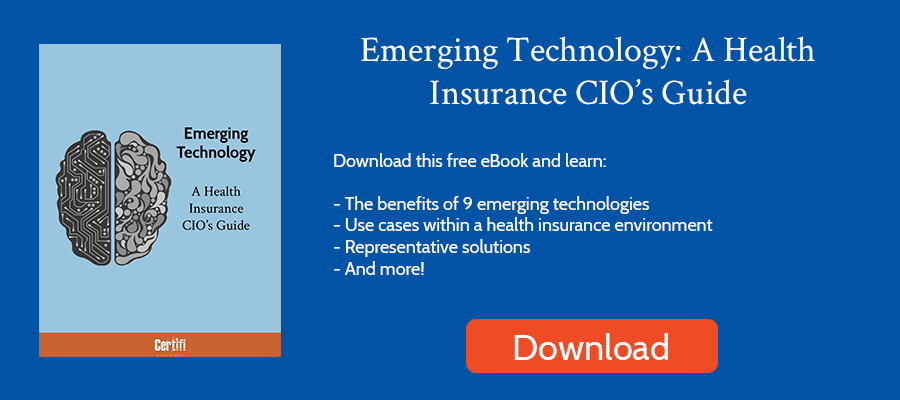ChatGPT was a revelation upon release, with the internet buzz eventually causing it to be intermittently unavailable due to high demand. It also may prove to be a seminal moment in the development of artificial intelligence.
Health insurers have dipped their toes in AI’s waters. However, according to a study by researchers at McKinsey & Company and Harvard University, they could save another 7% to 9% within the next five years using today’s technologies. With ChatGPT showing the way, more insurers may authorize such AI investments.
But what will they spend it on? Here are some potential investment areas for health insurance AI and potential cost savings:
Healthcare Management
For health insurers, healthcare management reduces costs by identifying and helping members in need of healthcare support. Typically, that means stratifying members to determine the most impactful interventions. That may include preventing adverse medical events, ensuring prescription drug adherence, making sure members attend regular preventive healthcare appointments, and even educating members about healthcare options.
Though many payers focus on healthcare management for high-risk – and thus expensive – populations, Blue Cross Blue Shield of Rhode Island (BCBSRI) years ago built healthcare management tools designed to identify currently low-risk members that could turn into high-risk populations. They then implemented interventions designed to observe those who struggle with weight gain or heart conditions, for example.
But that healthcare management system had one drawback: it didn’t evolve. Enter AI. AI is adept at identifying patterns that can otherwise be difficult to detect and ingesting large amounts of data to fine-tune results.
For example, BCBSRI found that seniors with osteoarthritis often undergo joint surgeries. Understanding other, less invasive, and expensive treatments were available, it used machine learning to identify members who might develop osteoarthritis. Then, leveraging digital tools instead of regular office visits, the insurer offered them a physical therapy program for joint health.
How Can Insurers Benefit?
Health plans may experience administrative savings by automating healthcare management processes with AI. However, a significant cost-cutting opportunity lies in reducing medical costs. As the osteoarthritis example shows, educating members about less invasive, less costly services can save significantly.
Provider Management
State and federal laws require health plans to deliver provider directories to members so they can find in-network providers. A 2019 study found that nearly half of the online directories contain inaccurate provider information.
Even worse, maintaining those directories is costly for health plans and providers. Health plans spend time manually updating provider information, while providers must send health insurers disparate information in disparate formats. That amounts to as much as one workday per provider per week.
Provider management may also include crafting and managing provider networks. For example, insurers aim to enforce clinical care guidelines among their providers through incentives or reimbursement rules to lower costs.
How Can Insurers Benefit?
AI can help insurers reduce the cost of managing providers and provider directories in several ways. For provider directories, AI may be able to identify data errors as they’re being entered and flag them for correction. Insurers could leverage AI to validate directory information – like an office location – or prioritize which provider records to update based on an AI scoring the predicted accuracy of each record.
Insurers can also use AI to analyze health records to improve their utilization management process. For example, Coordinated Care leveraged AI to support its provider communication processes. As a result, they were able to leverage data to score and automatically approve inpatient services for those that meet specific criteria.
Claims
Insurers’ initial forays into AI were grounded in claims management because it has traditionally been the most manual, expensive area of a health insurer’s operation.
There are three key areas AI can improve a health insurer’s claims processes:
Fraud Detection
AI excels at taking large datasets and recognizing patterns and anomalies that may indicate fraud. Algorithms can analyze claims data for signs of duplicates, upcoding, and other suspicious activity.
Plus, AI helps health plans review before paying claims, not after. For Blue Cross Blue Shield of Massachusetts, that means what used to take weeks to complete, AI completes in a day. AI also learns over time, improving the accuracy of the model. At BCBS of Massachusetts, humans confirmed 65 to 70% of AI-flagged issues as fraud. The health plan expects that number to increase over time as the AI learns.
Prior Authorization Management
Prior authorization management involves synthesizing various pieces of data – from eligibility to past claims to radiology results – to determine whether a procedure is necessary. AI streamlines gathering that data – which may even include leveraging natural language processing to extract information like clinical notes. AI can also limit the number of incoming requests by analyzing claims data to determine which procedures don’t require prior authorization.
When Guidewell launched a pilot program in 2021 to determine the feasibility of automated prior authorization using AI, the company found that it reduced the waiting period by 10 days while reducing unnecessary requests by 27%.
Claims Adjudication
AI can harvest information from claims forms and other documentation to reduce the need for manual data entry. Insurers can use AI to automate verifying the accuracy of claims.
Or, insurers can leverage AI to read contract data and apply it to claims processing, as Aetna did when they introduced AI to their claims management process in 2019.
How Can Insurers Benefit?
Claims-related AI use cases help alleviate administrative burdens, saving time and money. But they can also improve relationships with providers, automate fraud detection, and increase claims processing accuracy.
Member Services
The future of health insurance is personalized, member-focused care management. Health plans can leverage AI to analyze member data and provide unique recommendations and resources designed to improve each member’s health. That may mean providing personalized wellness plans, reminders for preventive care, or making recommendations for lifestyle modifications.
Health insurers can also use AI to improve the member experience. Many insurers already use AI chatbots and virtual assistants to deliver 24/7 care, leading to real-time member support.
Cigna uses AI to predict chronic diseases like cancer, heart disease, and diabetes and then helps members navigate the care system post-diagnosis. The company found that 60% more patients take advantage of recommended clinical programs and specialized advice.
How Can Insurers Benefit?
AI can help insurers engage members, improve their health and ultimately reduce healthcare costs. It can also free member service teams for higher-level member care, delivering a personalized member experience.
Finance
Premium billing is rarely a strategic priority for health plans. However, it’s often a manual process prone to error. Which not only wastes time but also leads to member dissatisfaction.
As a result, billing is a process ripe for AI automation. For example, we found that processing checks without payment stubs took a significant amount of time for a human to perform. So we utilize an AI to read and check information, compare it to a member database and make a recommendation based on that data. That process enables a health plan’s billing team to process four times as many checks in the same amount of time.
How Can Insurers Benefit?
Accuracy and efficiency are the primary benefits of introducing AI to a health insurer’s finance efforts.
Sales and Marketing
Personalization is the key to effective sales and marketing campaigns. Health insurers can use AI to improve their prospect and customer segmentation efforts to better target specific groups with marketing messages.
Once they’ve used AI to create segments, they can leverage AI-enhanced communications to personalize the message, further improving engagement and response rates.
Or, health insurers can use AI chatbots to improve the sales experience, guiding buyers to plans that are a good fit for their healthcare needs. That guidance improves the likelihood that shoppers will buy the plan. Or, they can leverage AI to analyze their data to detect Medicare Advantage members most likely to churn and then take actions to mitigate that disenrollment risk.
How Can Insurers Benefit?
Insurers can not only increase revenue by creating better buyer experiences but can also increase revenue by leveraging AI to reduce churn.
Certifi’s health insurance premium billing and payment solutions help healthcare payers improve member satisfaction while reducing administrative costs.



